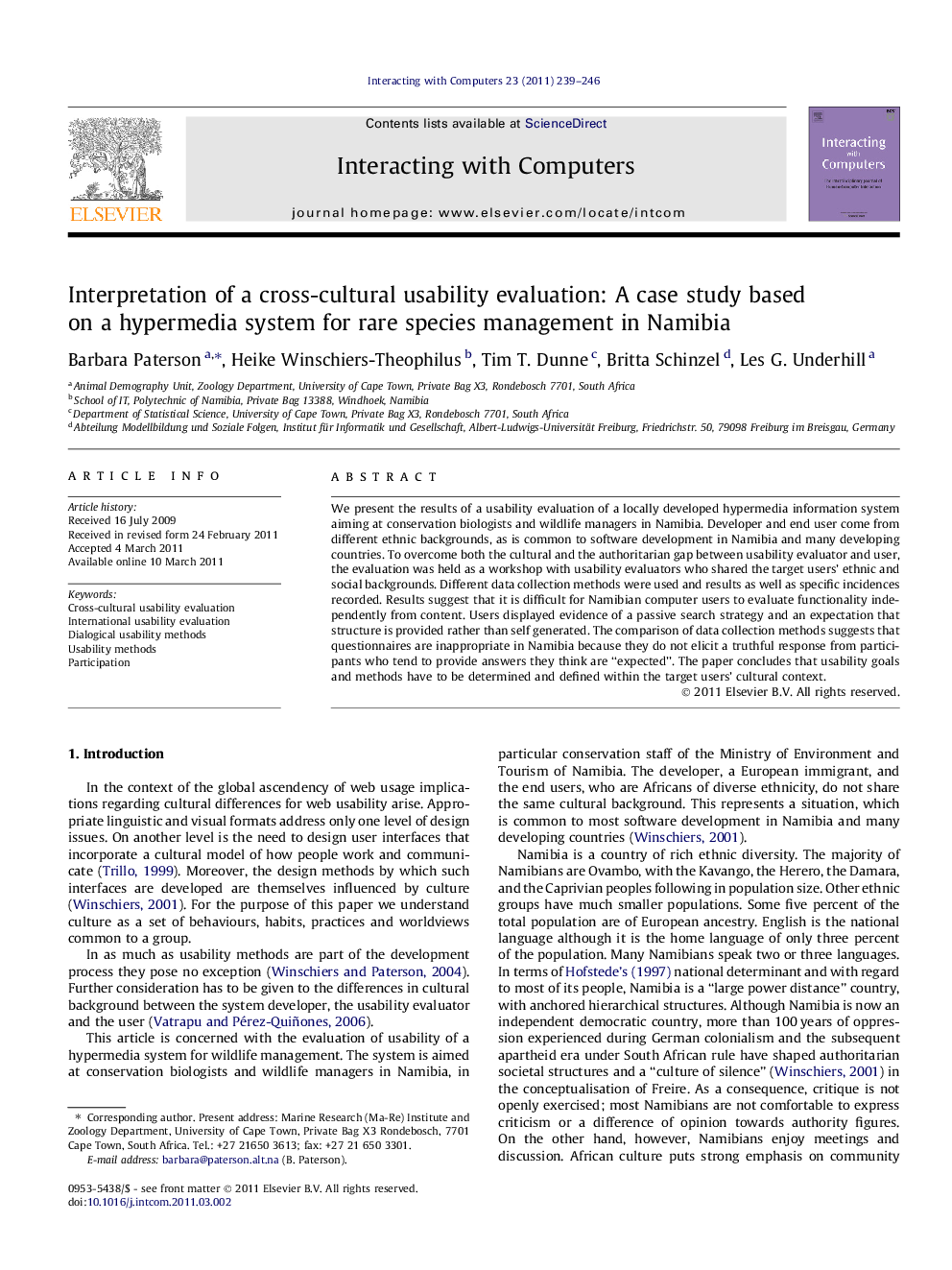| Article ID | Journal | Published Year | Pages | File Type |
|---|---|---|---|---|
| 551579 | Interacting with Computers | 2011 | 8 Pages |
We present the results of a usability evaluation of a locally developed hypermedia information system aiming at conservation biologists and wildlife managers in Namibia. Developer and end user come from different ethnic backgrounds, as is common to software development in Namibia and many developing countries. To overcome both the cultural and the authoritarian gap between usability evaluator and user, the evaluation was held as a workshop with usability evaluators who shared the target users’ ethnic and social backgrounds. Different data collection methods were used and results as well as specific incidences recorded. Results suggest that it is difficult for Namibian computer users to evaluate functionality independently from content. Users displayed evidence of a passive search strategy and an expectation that structure is provided rather than self generated. The comparison of data collection methods suggests that questionnaires are inappropriate in Namibia because they do not elicit a truthful response from participants who tend to provide answers they think are “expected”. The paper concludes that usability goals and methods have to be determined and defined within the target users’ cultural context.
► Namibian users displayed difficulty to evaluate functionalityindependently from content. ► Questionnaires are inappropriate when participants provide answers they think are expected. ► Usability goals and methods have to be defined within the users’ cultural context.
